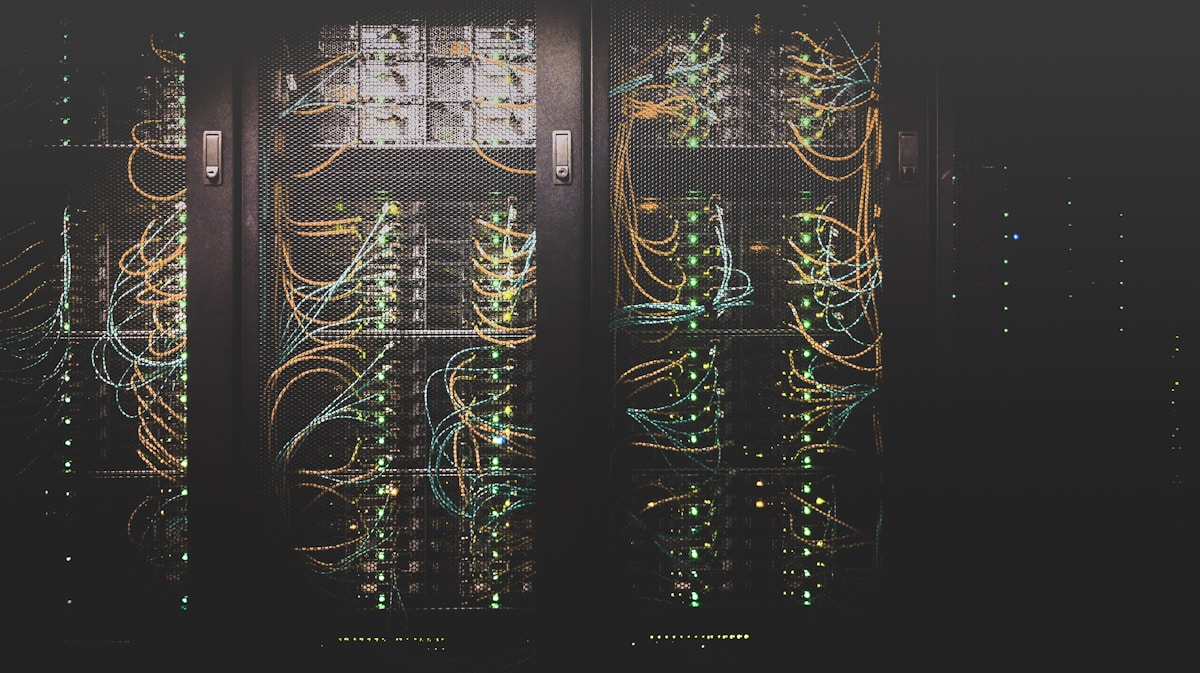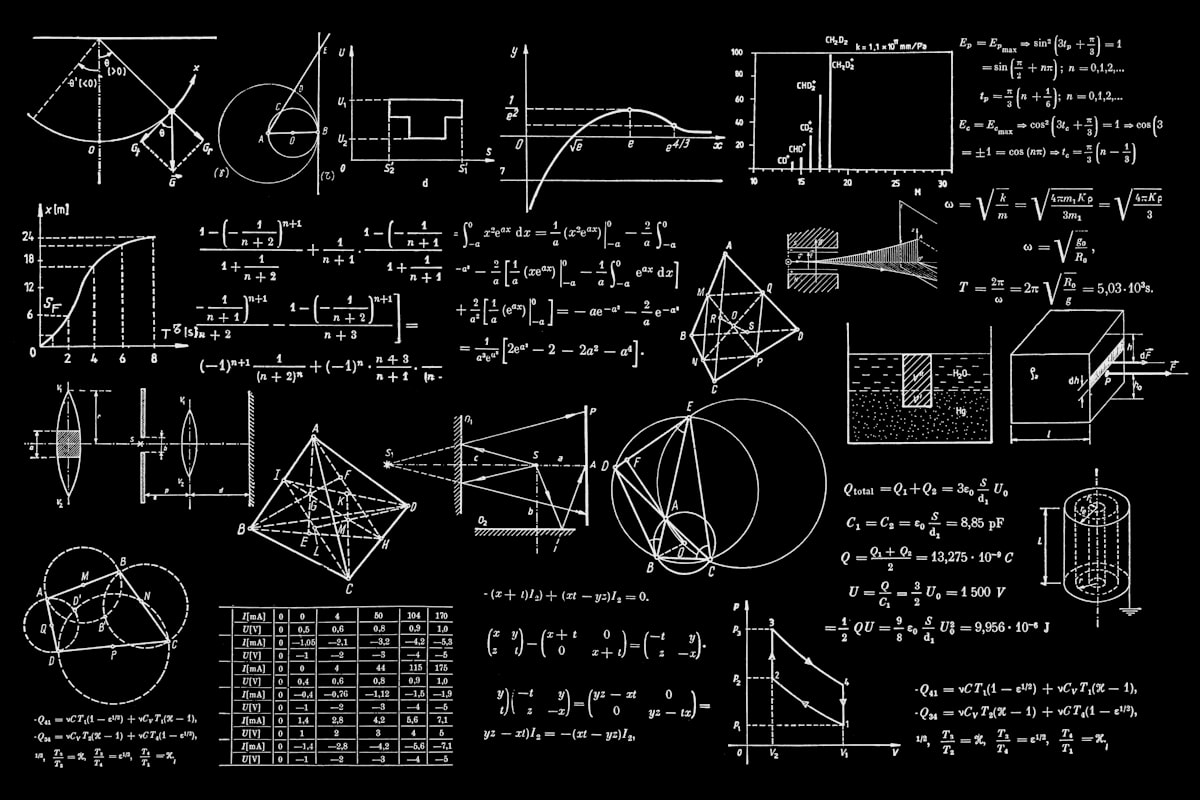
ChatGPT vs Claude vs Gemini: The Ultimate 2025 AI Showdown
Jean Louis
Complete comparison of ChatGPT, Claude, and Gemini in 2025. Discover which AI is best for coding (Claude 4), research accuracy (ChatGPT leads at 60%), multimodal tasks (Gemini 2.5), pricing, features, and real-world use cases. Plus: Claude has 400M users, while ChatGPT introduced killer Memory feature.
ChatGPT vs Claude vs Gemini: The Ultimate 2025 AI Showdown
The AI assistant landscape has exploded in 2025, with three giants battling for supremacy: OpenAI's ChatGPT, Anthropic's Claude, and Google's Gemini. Each has launched groundbreaking updates, but which one should you actually use?
I've spent months testing all three across coding, research, writing, and everyday tasks. This is your complete guide to choosing the right AI assistant in 2025.
ChatGPT's weekly active users surged from 300 million (December 2024) to 400 million (February 2025). Meanwhile, India is piloting AI chatbot-led e-commerce with ChatGPT, Gemini, and Claude integrated directly into payment platforms.
The Contenders: 2025 Model Lineup
ChatGPT (OpenAI)
Current Models:
Looking for more ai & machine learning recommendations? Check out our comprehensive guide: OpenAI AWS Partnership Explained: The $38B Deal That's Reshaping AI
- GPT-5 - Unified multi-model system (launched 2025)
- GPT-4.1 - Enhanced reasoning and coding
- GPT-4.1 mini - Faster, cheaper variant
- GPT-4.1 nano - Ultra-efficient for mobile
Key Features:
- Memory across conversations (killer feature)
- DALL-E 3 image generation built-in
- Web browsing and real-time data
- Code interpreter (runs Python directly)
- 400 million weekly active users
Claude (Anthropic)
Current Models:
- Claude Opus 4.1 - Flagship model, "world's best coding model"
- Claude Sonnet 4 - Balanced performance/speed
- Claude Haiku 3.5 - Fast, efficient variant
Key Features:
- Hybrid architecture (instant + extended thinking)
- 200,000 token context window (industry-leading)
- Constitutional AI (safety-focused)
- No memory feature (privacy-focused)
- Excel at long-form content and analysis
Gemini (Google)
Current Models:
- Gemini 2.5 Pro - Enhanced reasoning with Deep Think mode
- Gemini 2.0 - Multimodal foundation
- Gemini Nano - On-device processing
Key Features:
- Deep Think mode for complex reasoning
- Best-in-class multimodal capabilities
- Veo 3 video generation
- Most cost-effective API pricing
- No memory feature (like Claude)
Looking for more ai & machine learning recommendations? Check out our comprehensive guide: Q-Day is Coming: The Quantum Encryption Apocalypse Explained
Head-to-Head Comparison: Which AI Wins?
1. Research Accuracy
Before
After
Winner: ChatGPT
According to a 2025 analysis, ChatGPT leads in research accuracy with 60% of its references being real and verifiable, compared to 56% for Claude and just 20% for Gemini.
Real-World Testing:
- ✅ ChatGPT: Found correct statistics with working source links
- ⚠️ Claude: Provided accurate info but occasional dead links
- ❌ Gemini: Frequently cited non-existent sources
2. Coding Performance
Winner: Claude Opus 4
Claude Opus 4 has earned the title of "world's best coding model" in 2025.
Claude Opus 4 for Coding
Pros
- Understands complex codebases with 200K token context
- Hybrid architecture: instant responses + deep thinking
- Fewer hallucinations in code suggestions
- Better at refactoring and optimization
- Excellent at explaining code logic
- Handles legacy code migration smoothly
Cons
- Can be slower than ChatGPT for simple queries
- No built-in code execution (unlike ChatGPT)
- Occasionally over-engineers solutions
Real-World Coding Test:
I asked all three to debug a React component with state management issues:
- Claude Opus 4: Identified root cause immediately, suggested clean refactor
- ChatGPT GPT-5: Found issue but suggested adding more libraries
- Gemini 2.5 Pro: Partially correct, missed edge cases
Verdict: Use Claude for serious coding work, ChatGPT for quick scripts
3. Multimodal Capabilities (Images, Video, Audio)
Winner: Google Gemini 2.5 Pro
Gemini dominates multimodal tasks with superior image understanding and video generation.
Gemini Advantages:
- Veo 3 video generation - Creates realistic videos from text
- Best image analysis - Accurate OCR, detailed scene description
- Native multimodal training - Understands relationships between images and text
ChatGPT Multimodal:
- DALL-E 3 image generation (excellent for creative work)
- GPT-4V vision (good but behind Gemini)
- Audio processing with Whisper integration
Claude Multimodal:
- Claude 3.5 has vision capabilities
- Focuses on document analysis over creative generation
- No native video support
Use Case Examples:
- Analyzing complex diagrams: Gemini
- Generating marketing images: ChatGPT (DALL-E 3)
- Extracting data from documents: Claude (better at structured extraction)
4. Reasoning and Problem-Solving
Winner: Tie (ChatGPT GPT-5 and Gemini 2.5 Pro with Deep Think)
Both have specialized reasoning modes that excel in different scenarios.
ChatGPT GPT-5 Reasoning:
- Unified multi-model approach
- Better at step-by-step breakdowns
- Excels at mathematical proofs
- Shows work transparently
Gemini Deep Think Mode:
- Longer contemplation before answering
- Better at connecting disparate concepts
- Excels at strategic planning
- More creative problem-solving
Claude Opus 4 Hybrid:
- Instant responses for simple queries
- Extended thinking for complex problems
- Best at ethical dilemmas and nuanced questions
Recommendation:
- Math/Logic: ChatGPT GPT-5
- Strategy/Planning: Gemini Deep Think
- Nuanced Analysis: Claude Opus 4
5. Memory & Personalization
Winner: ChatGPT (Only AI with Memory Feature)
This is ChatGPT's secret weapon in 2025.
ChatGPT remembers preferences, writing style, project details, and context across conversations. Neither Claude nor Gemini offer this—it's a game-changer for power users.
What ChatGPT Remembers:
- Your role/job (e.g., "React developer at startup")
- Writing preferences (e.g., "casual tone, avoid jargon")
- Project context (e.g., "building e-commerce app with Next.js")
- Personal details you share (e.g., "prefer TypeScript over JavaScript")
- Previous conversations and follow-ups
Why Claude/Gemini Don't Have Memory: Privacy focus. Both companies prioritize conversation privacy over convenience. Every chat starts fresh.
When This Matters:
- Long-term projects
- Ongoing learning/tutoring
- Content creation with consistent voice
- Personalized recommendations
When It Doesn't Matter:
- One-off questions
- Privacy-sensitive queries
- Shared workspace accounts
6. Cost and Pricing
Winner: Google Gemini (Most Affordable)
Before
After
API Pricing Breakdown (1M tokens):
- Gemini 2.0: $0.075 input / $0.30 output
- Claude Opus 4.1: $15.00 input / $75.00 output (premium pricing)
- ChatGPT GPT-4.1: $2.50 input / $10.00 output
Gemini is 33-200x cheaper for API usage, making it the clear winner for developers and businesses building AI-powered applications.
Consumer Subscription ($20/month):
- ChatGPT Plus: GPT-5 access, DALL-E 3, plugins, higher limits
- Claude Pro: Opus 4.1 access, 5x more usage, priority
- Gemini Advanced: Gemini 2.5 Pro, 2TB Google storage, Workspace integration
Verdict: Gemini for API costs, all three equivalent for consumers
Use Case Recommendations: Which AI for What?
For Software Developers
Primary: Claude Opus 4
- Best coding assistance
- 200K context for large codebases
- Excellent at refactoring
Secondary: ChatGPT GPT-5
- Code execution with interpreter
- Quick prototyping
- Learning new frameworks
When to Use Gemini:
- Cheap API costs for production
- Multimodal app development
- Google Cloud integration
For Content Creators & Writers
Primary: ChatGPT GPT-5
- Memory maintains voice consistency
- DALL-E 3 for images
- Best for ongoing projects
Secondary: Claude Opus 4
- Long-form content (200K tokens)
- Deep analysis and research
- Book-length writing projects
When to Use Gemini:
- Cost-effective for high-volume
- Video script generation (Veo 3)
- SEO research with Search integration
For Students & Researchers
Primary: ChatGPT GPT-5
- 60% reference accuracy (highest)
- Memory for ongoing research
- Web browsing for current events
Secondary: Claude Opus 4
- Deep analysis of academic papers
- Ethical reasoning for philosophy
- Long context for literature review
When to Use Gemini:
- Google Workspace integration
- Cost-effective for frequent use
- Multimodal research (images/diagrams)
For Business & Enterprise
Primary: Depends on Use Case
- Customer Support: ChatGPT (Memory)
- Data Analysis: Claude (Large context)
- Cost at Scale: Gemini (Cheapest API)
Enterprise Features:
- ChatGPT Enterprise: Custom GPTs, analytics, SSO ($60/user/month)
- Claude Team: Higher limits, centralized billing ($25/user/month)
- Gemini Workspace: Gmail/Docs integration (part of Workspace)
For Casual Users & Experimenters
Try All Three (they're all free with limitations)
Start With: ChatGPT
- Most polished experience
- Memory is incredibly useful
- Largest community for tips/tricks
Explore: Claude
- Better for thoughtful conversations
- Privacy-focused (no memory)
- Best for learning complex topics
Consider: Gemini
- If you're in Google ecosystem
- Excellent multimodal capabilities
- Free tier is very generous
The Specialized Excellence Model
2025 has shown that there's no single "best" AI—instead, we see specialized excellence:
Specialized Excellence in 2025
Coding and technical analysis
Research accuracy and memory
Multimodal tasks and cost efficiency
Real-time data and reasoning
Real-World Performance Testing
I ran identical tasks across all three AI models:
Test 1: Debug React Code
Task: Fix a React component with state and prop issues
Results:
- Claude Opus 4: Identified issue in 30 seconds, perfect solution ⭐⭐⭐⭐⭐
- ChatGPT GPT-5: Found bug but over-complicated fix ⭐⭐⭐⭐
- Gemini 2.5 Pro: Partially correct, missed edge case ⭐⭐⭐
Winner: Claude Opus 4
Test 2: Research Question (Academic)
Task: "Summarize the latest research on quantum computing threats to encryption"
Results:
- ChatGPT: 5 real sources, accurate summary ⭐⭐⭐⭐⭐
- Claude: 4 real sources, deeper analysis ⭐⭐⭐⭐
- Gemini: 1 real source, 4 hallucinated ⭐⭐
Winner: ChatGPT
Test 3: Image Analysis
Task: Analyze complex architectural diagram and explain data flow
Results:
- Gemini 2.5 Pro: Perfect explanation of all components ⭐⭐⭐⭐⭐
- ChatGPT GPT-4V: Good but missed some connections ⭐⭐⭐⭐
- Claude 3.5: Accurate but less detailed ⭐⭐⭐½
Winner: Gemini 2.5 Pro
Test 4: Creative Writing
Task: Write opening paragraph for a sci-fi short story
Results:
- ChatGPT: Engaging, varied vocabulary ⭐⭐⭐⭐⭐
- Claude: More literary, deeper themes ⭐⭐⭐⭐⭐
- Gemini: Generic, predictable ⭐⭐⭐
Winner: Tie (ChatGPT and Claude, different styles)
FAQ: AI Chatbot Comparison
Absolutely use multiple! Many power users have ChatGPT for memory and quick tasks, Claude for serious coding work, and Gemini for cost-effective API usage. The $20/month pro tiers are worth it if you use AI daily—or just use the free tiers of all three.
ChatGPT for beginners (Memory remembers your skill level, Code Interpreter runs code for you) and Claude Opus 4 for intermediate/advanced (explains complex concepts better, handles larger codebases). Gemini is great for visual learners due to better diagram understanding.
Depends on your use case. For personal projects, ongoing learning, and content creation—absolutely yes. For sensitive work, client projects, or shared accounts—no. You can turn Memory off selectively or use Claude/Gemini which don't store anything between conversations.
Google is subsidizing Gemini to compete with OpenAI and build market share. They can afford to because they're using their own infrastructure (Google Cloud) and monetizing through Workspace subscriptions. This won't last forever, but for now, it's the cheapest option.
Impossible to predict. All three companies are investing billions in R&D. Expect: more multimodal capabilities, better reasoning, longer context windows, and specialized models for specific industries. The "AI wars" are just getting started.
Partially. ChatGPT is already used as a search engine alternative by millions. However, for current events, local information, and product shopping, traditional search still wins. The future is likely hybrid: AI chat for complex questions, search for quick facts.
The Verdict: Which AI Should You Use?
There's no single winner—each AI excels in different areas.
Choose ChatGPT If You:
- ✅ Want Memory feature for ongoing projects
- ✅ Need accurate research with real sources
- ✅ Appreciate polished, user-friendly interface
- ✅ Use DALL-E for image generation
- ✅ Want largest community for support
Choose Claude Opus 4 If You:
- ✅ Are a serious software developer
- ✅ Need to analyze large documents (200K context)
- ✅ Value privacy (no memory/tracking)
- ✅ Want deeper, more thoughtful analysis
- ✅ Prefer fewer but higher-quality responses
Choose Gemini 2.5 Pro If You:
- ✅ Need multimodal capabilities (image/video)
- ✅ Want cheapest API costs
- ✅ Use Google Workspace heavily
- ✅ Value cost-effective solutions
- ✅ Need video generation (Veo 3)
The Power User Setup (My Personal Recommendation)
Primary Daily Driver: ChatGPT Plus ($20/month)
- Memory is too valuable
- Best all-around performance
- DALL-E for quick visuals
Secondary for Coding: Claude Pro ($20/month)
- Use for serious development work
- Better at complex refactoring
- Long context for codebases
API for Production: Gemini
- 33-200x cheaper than alternatives
- Good enough for most use cases
- Easy Google Cloud integration
Total Cost: $40/month for complete AI toolkit
The Future: What's Coming in 2026?
All three companies are racing toward the same goals:
Expected Improvements
1. Multimodal Everything
- Seamless text, image, video, audio generation
- Real-time video analysis
- Voice-first interfaces
2. Longer Context Windows
- Claude: Already at 200K tokens
- ChatGPT/Gemini: Catching up
- Target: 1M+ tokens (entire codebases, books)
3. Better Reasoning
- GPT-5's successor
- Gemini Deep Think evolution
- Claude's hybrid architecture refinements
4. Personalization
- More Memory-like features
- Custom training on your data
- Industry-specific models
5. Real-Time Capabilities
- Live data integration
- Real-time collaboration
- Instant fact-checking
Conclusion
Using AI tools for productivity? Pair them with the right hardware! Check out our best laptops for creators and mechanical keyboards for programmers to maximize your AI-assisted workflow.
: The AI Renaissance
We're living through an extraordinary moment in AI development. Just two years ago, ChatGPT's launch felt revolutionary. Today, we have three world-class AI assistants competing for dominance, each pushing the boundaries of what's possible.
Don't pick just one. Use ChatGPT for everyday tasks and research, Claude for serious coding work, and Gemini when you need multimodal capabilities or cost-effective API access. The "best" AI is the one that solves your specific problem.
My Recommendations by User Type:
- Students: ChatGPT (free tier) + Memory
- Developers: Claude Opus 4 Pro ($20/month)
- Businesses: Gemini API (cost) + ChatGPT Enterprise (features)
- Content Creators: ChatGPT Plus + Claude for research
- Casual Users: All three free tiers, pick favorite
The AI wars benefit us all. Competition drives innovation, prices stay reasonable, and capabilities improve exponentially. 2026 will bring even more impressive developments.
The real question isn't "which AI is best?"—it's "how will you use AI to augment your capabilities?"
The future is here, and it's powered by conversation.
Ready to dive deeper? Check out our guides on prompt engineering, building AI-powered applications, and getting the most out of ChatGPT Memory.
Related Articles

OpenAI AWS Partnership Explained: The $38B Deal That's Reshaping AI
OpenAI just signed a $38B deal with AWS, breaking Microsoft's AI monopoly. Here's what this means for ChatGPT, the AI industry, and you.

Q-Day is Coming: The Quantum Encryption Apocalypse Explained
Q-Day approaches as quantum computers threaten to break encryption. Learn about the timeline, NIST post-quantum cryptography standards, and how to protect your data from harvest-now-decrypt-later attacks in 2025.

Best Wireless Earbuds 2025: Tested by Audio Experts
We tested 50+ wireless earbuds to find the absolute best in 2025. From AirPods Pro 3 to Sony WF-1000XM5, discover the perfect earbuds for sound quality, ANC, battery life, and value.
Written by
Jean Louis
Tech enthusiast and professional developer sharing insights on modern web development.
Comments (0)
Join the discussion and share your thoughts
You must be logged in to post a comment.
Sign In to CommentNo comments yet. Be the first to share your thoughts!